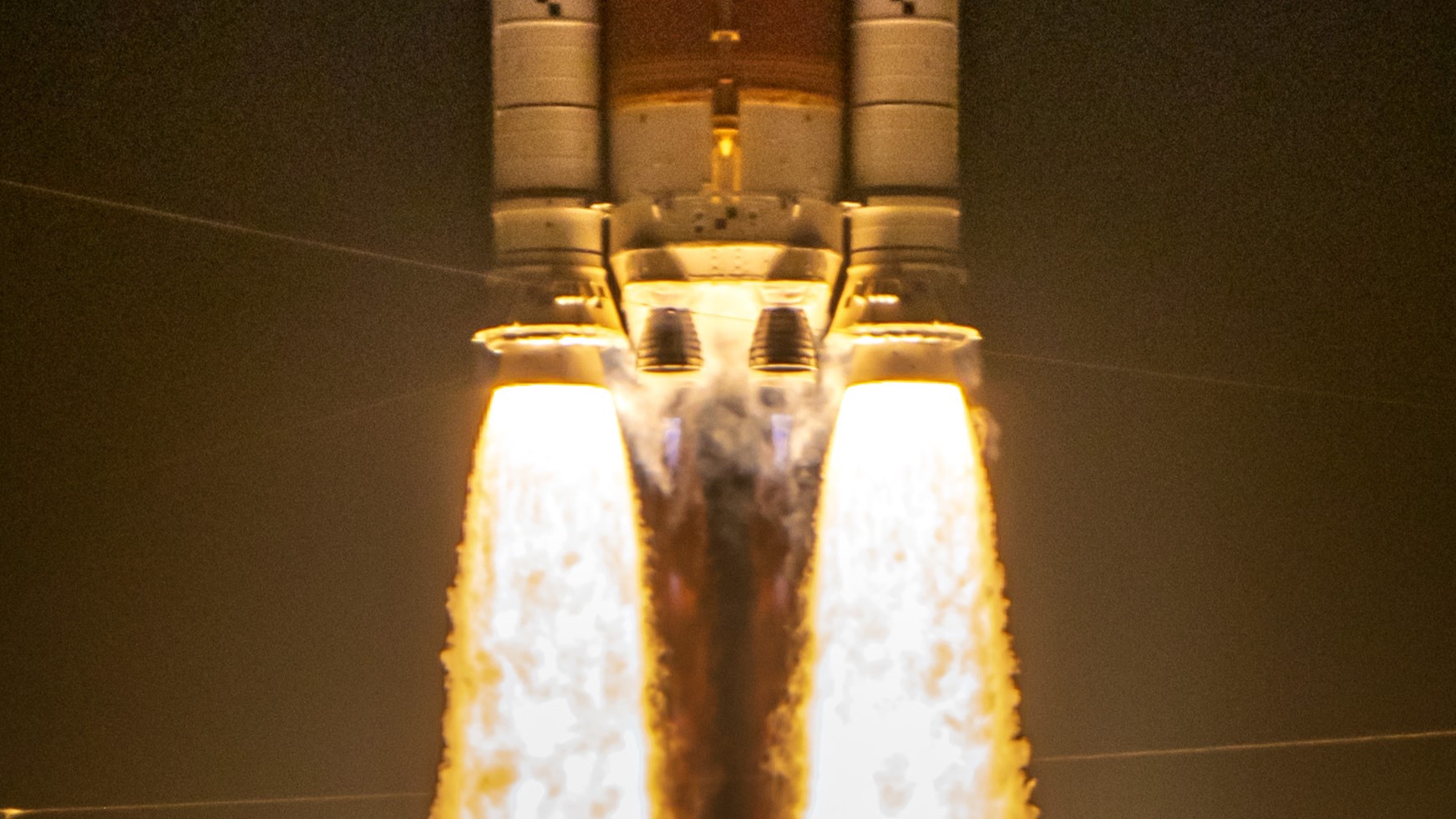Boeing needs to improve quality-control work on SLS moon rocket, NASA Inspector General finds
The report finds serious quality-control issues affecting the upgraded SLS version and expects cost overruns and delays.

Breaking space news, the latest updates on rocket launches, skywatching events and more!
You are now subscribed
Your newsletter sign-up was successful
Want to add more newsletters?

Delivered daily
Daily Newsletter
Breaking space news, the latest updates on rocket launches, skywatching events and more!

Once a month
Watch This Space
Sign up to our monthly entertainment newsletter to keep up with all our coverage of the latest sci-fi and space movies, tv shows, games and books.

Once a week
Night Sky This Week
Discover this week's must-see night sky events, moon phases, and stunning astrophotos. Sign up for our skywatching newsletter and explore the universe with us!

Twice a month
Strange New Words
Space.com's Sci-Fi Reader's Club. Read a sci-fi short story every month and join a virtual community of fellow science fiction fans!
A scathing report from NASA's Office of Inspector General (OIG) has highlighted several critical issues related to the development of the next version of the agency's Space Launch System megarocket, which will likely delay Artemis moon missions.
The report, released by NASA's internal watchdog on Aug. 8, focuses on the gigantic Space Launch System (SLS) Block 1B and its Exploration Upper Stage (EUS). Block 1B is designed to increase the amount of cargo SLS can carry to the moon. The upgraded version is key to NASA's long-term lunar plans and will be used for Artemis 4, currently scheduled to launch in 2028.
The OIG found that work being done by Boeing — the prime contractor for the SLS core and upper stages, as well as the rocket's flight avionics suite — at NASA's Michoud Assembly Facility in New Orleans does not meet international standards or agency requirements. This has led to numerous Corrective Action Requests (CARs) issued by the Defense Contract Management Agency (DCMA). A CAR, which can vary in level of severity, indicates that work has not conformed to specific contract requirements.
According to the OIG report, these quality-control lapses at Michoud are "largely due to the lack of a sufficient number of trained and experienced aerospace workers at Boeing." The report criticizes Boeing's inadequate training and supervision efforts, which fail to mitigate these deficiencies, thereby raising serious concerns about the safety and reliability of the SLS components.
The report also notes growing cost estimates and suggests that Artemis 4 may not hit its expected September 2028 launch date due to such issues.
Related: Space Launch System: NASA's megarocket for Artemis moon missions
"We project SLS Block 1B costs will reach approximately $5.7 billion before the system is scheduled to launch in 2028. This is $700 million more than NASA's 2023 Agency Baseline Commitment, which established a cost and schedule baseline at nearly $5 billion," the OIG report states.
Breaking space news, the latest updates on rocket launches, skywatching events and more!
"EUS development accounts for more than half of this cost, which we estimate will increase from an initial cost of $962 million in 2017 to nearly $2.8 billion through 2028."
It states that Boeing's delivery of the EUS to NASA has so far been delayed from February 2021 to April 2027. These issues, when combined with other factors, suggest further delays, which would impact Artemis 4.
Boeing's response to these issues has also been found to be ineffective, particularly regarding recurrent quality-control problems.
The OIG's recommendations include developing a compliant quality management training program for Boeing and issuing financial penalties for Boeing's noncompliance with quality standards. A detailed cost overrun analysis on Boeing's EUS development contract is also suggested. NASA agreed with three of four recommendations, but did not agree to institute financial penalties for Boeing's noncompliance with quality-control standards.
The report is another blow to Boeing, whose Starliner spacecraft is currently under scrutiny following its unscheduled, extended stay docked at the International Space Station (ISS) while tests related to problematic reaction control thrusters continue.
It is also another issue for NASA's Artemis program. The Artemis 2 and Artemis 3 missions — the latter being the planned first return of humans to the moon's surface — have this year already been pushed back to September 2025 and September 2026, respectively.
Meanwhile, Artemis' Orion spacecraft, which is built by Lockheed Martin, also faces some trouble. The NASA OIG issued a report in May on Orion heat shield issues, which could further impact the readiness for the Artemis 2 mission, which will send astronauts around the moon.

Andrew is a freelance space journalist with a focus on reporting on China's rapidly growing space sector. He began writing for Space.com in 2019 and writes for SpaceNews, IEEE Spectrum, National Geographic, Sky & Telescope, New Scientist and others. Andrew first caught the space bug when, as a youngster, he saw Voyager images of other worlds in our solar system for the first time. Away from space, Andrew enjoys trail running in the forests of Finland. You can follow him on Twitter @AJ_FI.
